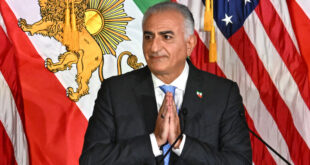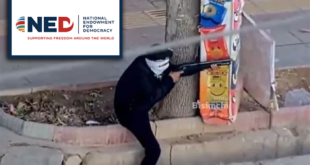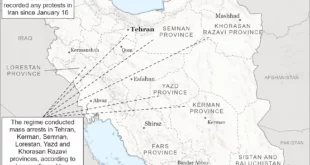 TEHRAN (AP) — Iran rejected calls Tuesday for a quick answer to the package of Western incentives aimed at persuading it to suspend its controversial nuclear programme, insisting that it will come up with a formal response by mid-August.
TEHRAN (AP) — Iran rejected calls Tuesday for a quick answer to the package of Western incentives aimed at persuading it to suspend its controversial nuclear programme, insisting that it will come up with a formal response by mid-August.
Foreign Minister Manouchehr Mottaki said Iran had to take time to carefully study the proposal before it offered a formal reply, and hinted Tehran planned to negotiate some aspects of the package before answering.
Meanwhile, Russian President Vladimir Putin on Tuesday urged Iran to accept the incentives and China also called on Tehran to respond quickly.
Iranian President Mahmoud Ahmadinejad has said his country would wait until mid-August to respond to the Western offer, prompting US President George W. Bush to accuse Tehran of dragging its feet. Mottaki confirmed on Tuesday that the mid-August date would not change, the official Islamic Republic News Agency reported. “The date announced by the Islamic Republic of Iran for responding to the proposed package is unchangeable,†IRNA quoted Mottaki as saying. “The [mid] August date announced by Iran was based on the necessity for a comprehensive and accurate study of the package and is unalterable,†Mottaki was quoted as saying.
The foreign minister hinted that Iran would negotiate some aspects of the deal before offering a formal response.
“What can happen until that date [mid-August] is talks between Iran, the European Union and other countries that contributed in drawing up the package,†he said.
Mottaki made the announcement as Iran’s top nuclear negotiator Ali Larijani was preparing to meet European Union foreign policy chief Javier Solana on Wednesday in Brussels to discuss the package.
Solana presented the package when he visited Tehran on June 6. It offers Iran a range of incentives in exchange for a long-term moratorium on uranium enrichment, a process that can produce material for nuclear generators, or atomic bombs.
The five permanent members of the UN Security Council plus Germany want Iran to respond to the incentives as early as this week, before the July 15-17 summit of the Group of Eight industrialized nations in Russia.
Speaking on the state-run television, Larijani said Tuesday that experts in Iran were carefully studying different aspects of the deal. “We have taken it very seriously. Various expert committees are still studying the proposals,†he said.
Larijani said, however, that Iran didn’t see any logic in permanently suppressing its nuclear programme. “We don’t see a [permanent] halt to uranium enrichment as a logical proposal,†he said.
Larijani has said the proposals were “positive steps†but that talks were needed to clear up ambiguities.
The US and some of its allies accuse Iran of using its civilian nuclear programme as a cover to build atomic weapons. Tehran has denied the charges, saying its nuclear programme is geared merely towards generating electricity.
Although details of the new offer have not been made public, diplomats have said it includes economic incentives and a provision for the United States to offer Iran some nuclear technology, lift some sanctions and join direct negotiations.
Crucially, the package calls on Iran to suspend — not permanently halt — uranium enrichment.
Iran has said it will never give up its right under the nuclear Non-Proliferation Treaty to enrich uranium and produce nuclear fuel, but has indicated that it may temporarily suspend large-scale enrichment to ease tensions.
Meanwhile, Mottaki said he had also discussed the nuclear issue with Qatari Foreign Minister Sheikh Hamad Ben Jassim Al Thani, whose country is a non-permanent member of the UN Security Council.
“I am carrying an oral message from the Qatari emir [Sheikh Hamad Ben Khalifa Al Thani],†Sheikh Hamad told reporters without providing details.
He was accompanied by a delegation from the Qatari interior, oil and reconstruction ministries.Â
 Eurasia Press & News
Eurasia Press & News



